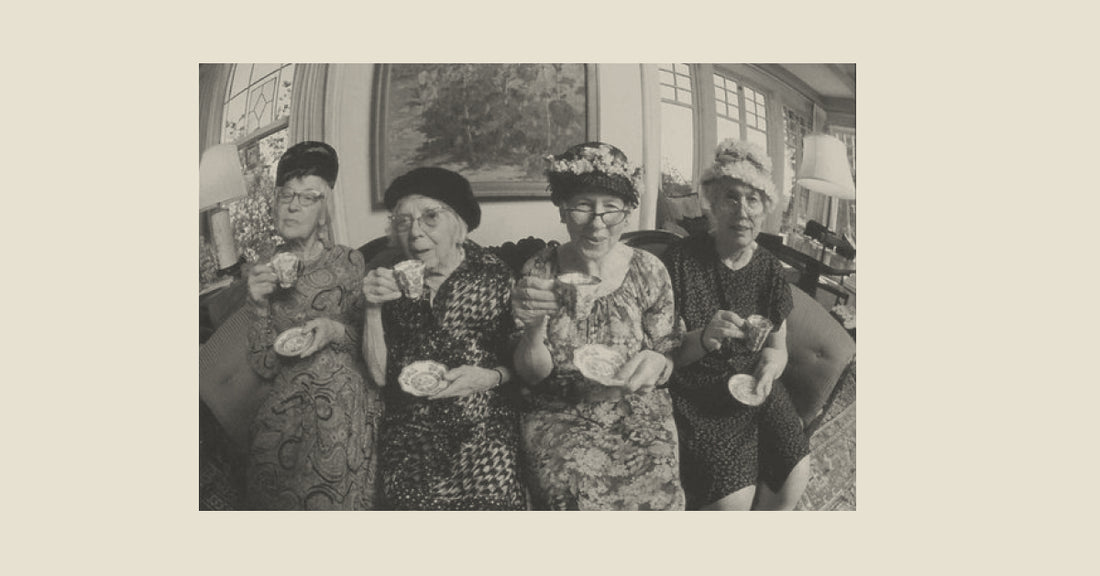Look, it’s no secret that we at MUD\WTR aren’t fans of coffee. Our whole raison d’être is to help people break their toxic relationships with that gnarly stuff.
It’s also no secret that we’re friendly to microdosing. (Just in case anyone reading this is unfamiliar, that’s the act of taking small, sub-perceptual doses of psychedelics.)
So, we got to wondering: What happens when people combine a microdosing practice with coffee use? Is it just us, or does this sound like the most catastrophic combination this side of red ant ice cream or accordion-driven death metal?
For answers, we reached out to Brittany Lillegard, the director of education and content at Microdosing Institute. She gave us a well-informed, unbiased take on the burning question:
Should I Drink Coffee While Microdosing?
As it turns out, this is one of the most common questions that Microdosing Institute gets. According to Lillegard, while results will vary from one person to the next, combining coffee with microdosing is not harmful for most people. However, the institute frequently recommends that before taking up a microdosing practice, its coaching clients minimize their coffee use or consider weaning themselves off the stuff altogether. That’s especially advisable for those with adrenal fatigue, chronic stress or, above all else, high anxiety.
“Psychedelics in general—and this is true even in microdoses—are considered nonspecific amplifiers, meaning that whatever is going on in your internal or external environment has the potential to be amplified and made stronger,” Lillegard says. “We know, as well, that coffee can exacerbate anxiety.”
Put these factors together, and voila! It’s a field trip to Suck City.
The same goes for people with worn-out adrenal glands. “When people consume coffee and have adrenal fatigue, they tend to experience the effects of coffee stronger and have a bigger crash after it wears off,” Lillegard offers. “These highs and lows have the potential to be felt even more when microdosing, due to the ‘amplifying’ nature of the practice.”
She feels this isn’t always a bad thing, though. “Microdosing when you have adrenal fatigue may help someone more clearly recognize their stress triggers that keep them in a constant state of fatigue, including becoming more aware that in their current state, coffee actually causes more long-term stress despite providing a short-term energy boost,” she says.
Backing Away Slowly
If you fall into one of the categories mentioned above, or if you’re thinking about reducing your coffee intake for other reasons, it’s best not to do so while you’re microdosing. Instead, because the symptoms of caffeine withdrawal can be so uncomfortable, and because microdosing can magnify those feelings, Lillegard advises that you start minimizing your coffee consumption about six to eight weeks before taking up a microdosing regimen. She also recommends tapering off gradually rather than stopping abruptly.
“People can get very cranky, uncomfortable and unfocused if they are in the process of weaning off of coffee, especially if they do it cold turkey,” she cautions. This is especially true for adrenal fatigue sufferers, as the stress of caffeine withdrawal can exacerbate the effects of that condition.
So, what if you’re already microdosing, and you notice that coffee tends to mute or dampen the subtle effects that you get from this practice? According to Lillegard, the solution may not necessarily be to give up caffeine. Rather, she recommends finding a lower-caffeine alternative “where you can still get a little bit of that caffeine benefit without the overextended impact that caffeine can have on us.”
That, of course, is where MUD\WTR comes in. We don’t like to brag (that’s a lie), but mud is a lower-caffeine coffee alternative par excellence, and our coffee detox program is designed to help you back away slowly from your coffeemaker with a minimum of withdrawal symptoms.
Microdosing as a Coffee Substitute
One last thing: If you’re drinking coffee for improved focus, you might be able to get the same benefits from microdosing, but without the crash. According to Lillegard, there’s an extra perk to this: Microdosing also can help rewire your brain in such a way as to improve your focus in the long term, as opposed to just the short period of time when the substance is in your body.
Stir that together with the performance benefits of MUD\WTR (and perhaps the invigorating properties of cold water immersion), and you might have the perfect coffee substitute.
Damon Orion is a writer, musician, artist, and teacher based in Santa Cruz, CA. He has written for Revolver, Guitar World, Spirituality & Health, Classic Rock, High Times and other publications. Read more of his work at damonorion.com.
Read more: Why Your Therapist Cares if You Drink Coffee
Read more: How to Set Intentions for Microdosing
Read more: Why MUD\WTR Allows Microdosing at Work